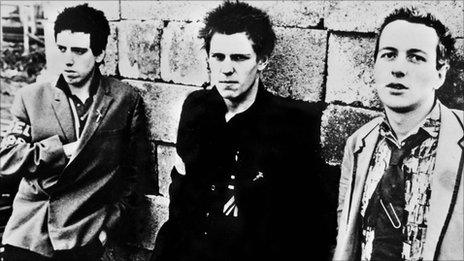The Clash discussed at university conference in Belfast
- Published
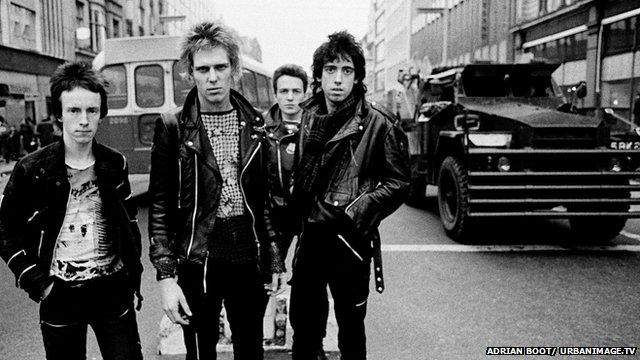
Almost 37 years after the cancellation of a gig by The Clash caused a near riot in Belfast, a university in the city is hosting an academic conference on the band's wider impact and legacy.
Street violence and bombings as the Troubles raged in Northern Ireland meant bands mostly shunned Belfast.
While punk was often cited by bands as a reaction to overwhelming boredom, in Belfast young people were starved of anything approaching normality.
During punk's 'year zero' of 1977, 111 people were killed in Northern Ireland.
The arrival of the Clash at the genteel Ulster Hall in October 1977 was a big deal, but as crowds gathered outside, word quickly began spreading that it had been called off.
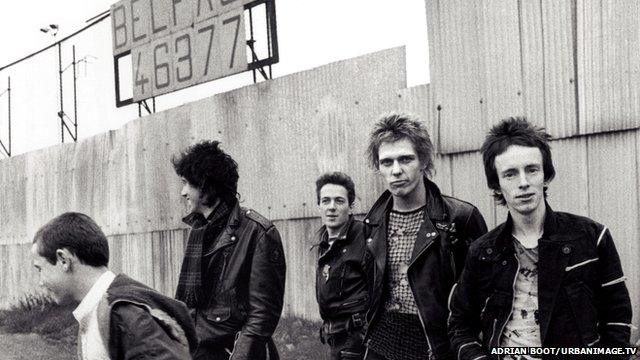
One of those fans was Dr Paul Burgess, a founder member of Belfast punk band Ruefrex, who is involved in the symposium at the University of Ulster.
"It has kind of entered into local and punk history, but my memory of it as a 17-year-old is that it was marked by misinformation and confusion," said the University College Cork lecturer.
"Someone said the Clash were at the Ulster Hall but were not being allowed in, then there was a crowd broke off running around saying the lead singer Joe Strummer had been arrested at the Europa Hotel."
The band had retreated to the relative safety of the bar at the nearby Europa, known as one of the most bombed hotels in Europe and a refuge for visiting journalists and celebrities during the Troubles, while about 100 teenagers gathered outside.
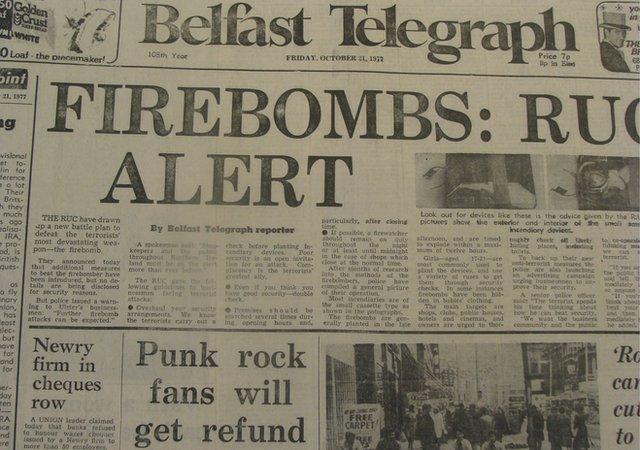
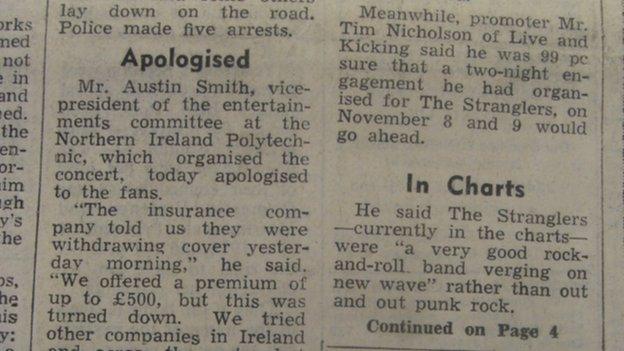
Despite the turmoil in Northern Ireland, the cancelled concert still made the front pages of the following day's papers.
The News Letter reported: "Belfast - a city steeped in demo drama ranging from the Peace People to the paramilitaries - last night experienced its first Punk Rock rally.
"It happened when a horde of kids turned up at the city's Ulster Hall for a star billed concert by top-rated Punk Rock group 'Clash'."
'Battle of Bedford Street'
The Belfast Telegraph said the city missed out on its "first taste of full-blooded punk rock" because insurance cover for the concert was withdrawn.
While the legend of the night has passed into folklore - described by punk veterans perhaps with tongue-in-cheek as the 'battle of Bedford Street, external' - the report suggests it was a fairly tame affair by Belfast's standards.
"There was some trouble when a handful of the fans smashed three windows in the hall and some others lay down on the road. Police made five arrests," it reported.
Teenagers with safety pins in their ears and noses crowded the pavement, it said.
"One fan carried an old kettle as his handbag, and others had torn trousers and stars in their hair."
The cancellation of the concert meant there was more time for a photoshoot that would produce some of the most enduring images of the band.
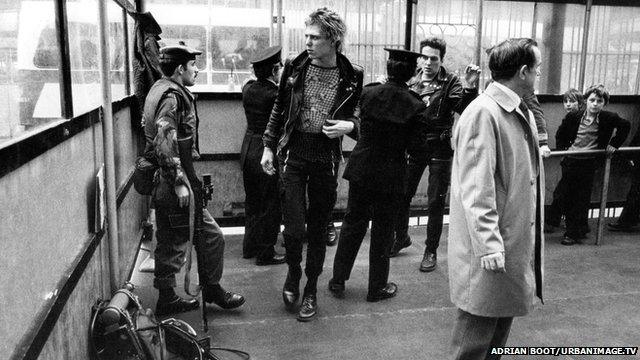
Photographer Adrian Boot, who is among the speakers at the conference, said the situation on the streets was so dramatic that he would have got striking images even if the band were not there.
"The photo session was extended because the concert was cancelled so it was a bit of an opportunity for me," he said.
"The record company knew there was a dearth of entertainment coming into Belfast and it upset the Clash that they couldn't play."
While the photos have gone on to adorn T-shirts and posters owned by new generations of fans, they were not without controversy.
"The real issue at the time, as the Sex Pistols' John Lydon famously said, was whether they were having a cheap holiday in other people's misery," said Dr Burgess.
"The criticism was that they were perhaps flying in for a photo opportunity in a conflict zone."
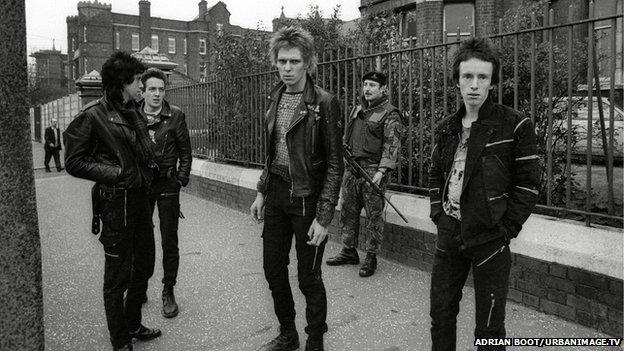
A university conference may seem far removed from the white heat of punk, but one of its organisers said it was in keeping with the Clash's ideology.
"Certainly they were a band who were pro-education, pro-creativity, pro-ideas and pro-ideals, so I would imagine Joe Strummer might consider this a fitting testimony to the body of work he left," said Dr Colin Coulter of the National University of Ireland Maynooth.
"The band's musical and political horizons were so broad that they broadened everyone else's as well.
"Listening to the Clash was a cultural and political education second to none."
A Riot of Our Own - a symposium on the Clash, external - is being organised by the Department of Sociology at the National University of Ireland Maynooth and the University of Ulster's School of Sociology and Applied Social Studies.
It is being held at the University of Ulster's Belfast campus on 20-21 June.
- Published22 December 2012
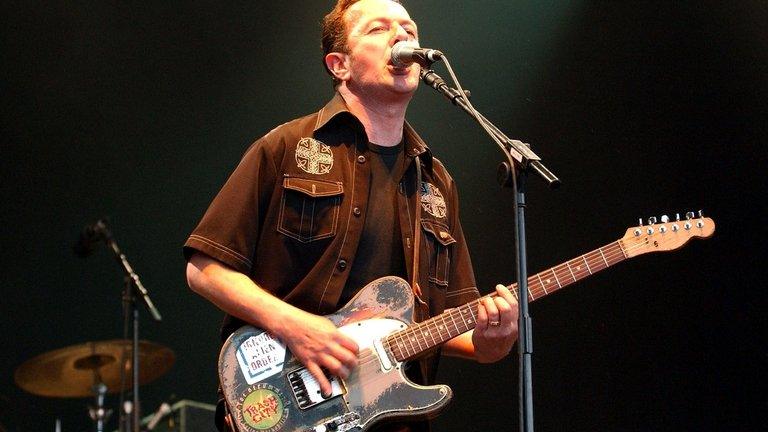
- Published11 May 2012
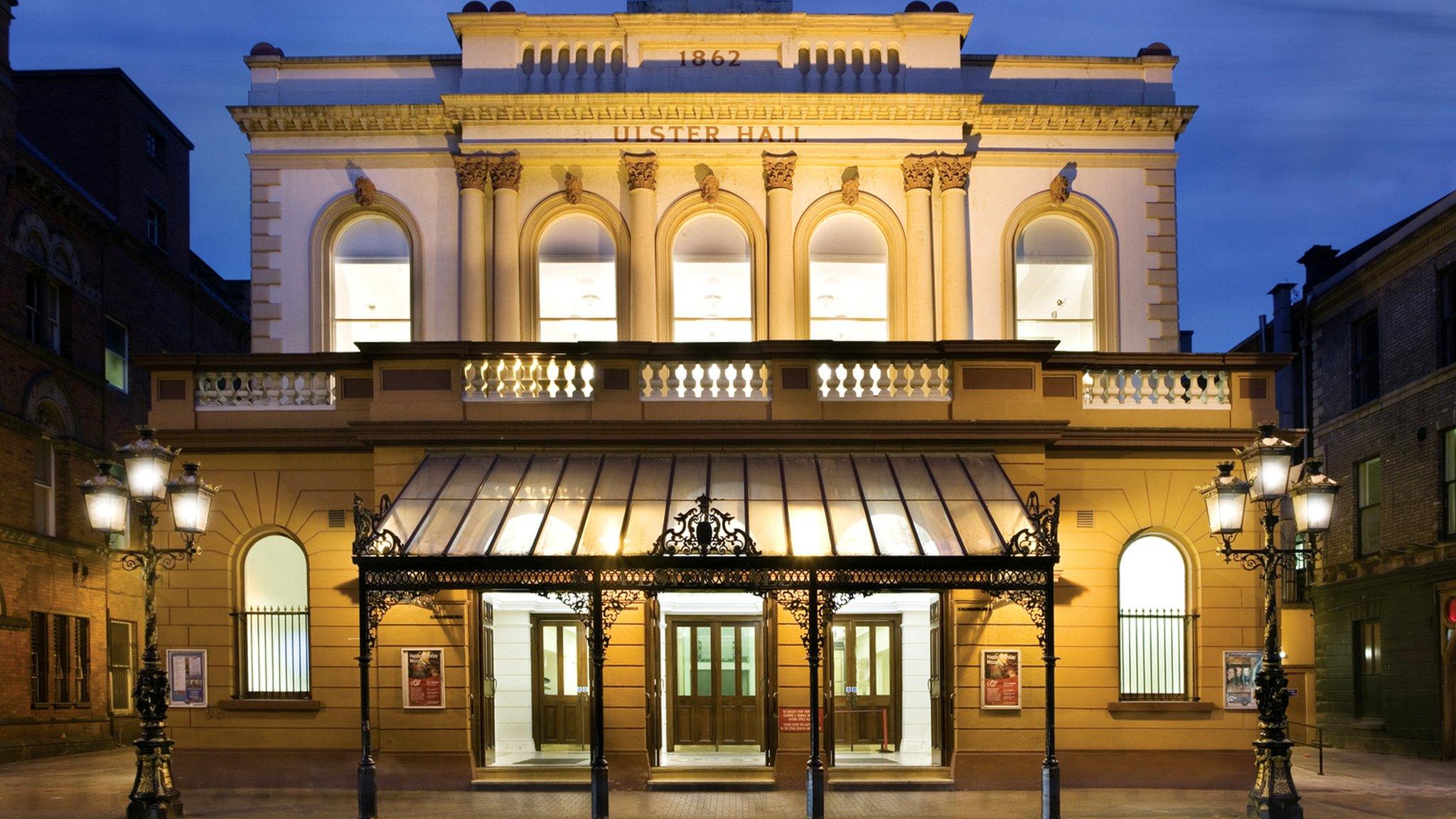
- Published28 July 2011
